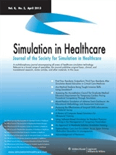
Simulation in Healthcare-Journal of the Society for Simulation in Healthcare
Scope & Guideline
Empowering practitioners with evidence-based simulation insights.
Introduction
Aims and Scopes
- Healthcare Simulation Education:
The journal emphasizes the development and evaluation of simulation-based education across healthcare disciplines, focusing on improving learner outcomes and clinical skills. - Interprofessional Collaboration:
Research highlights the role of simulation in fostering collaboration among different healthcare professions, aiming to improve teamwork and communication in clinical settings. - Patient Safety and Quality Improvement:
The journal explores how simulation can identify latent safety threats and enhance patient safety protocols, contributing to continuous quality improvement in healthcare. - Technology Integration in Simulation:
A core area of focus is the integration of advanced technologies, such as virtual reality and artificial intelligence, into simulation training to enhance realism and effectiveness. - Assessment and Evaluation in Simulation:
The journal investigates various assessment methodologies for evaluating simulation effectiveness, learner performance, and the impact of simulation on patient outcomes.
Trending and Emerging
- Virtual and Remote Simulation:
The rise of virtual and remote simulation techniques, particularly in response to the COVID-19 pandemic, is a significant trend, facilitating access to training regardless of geographical limitations. - Interprofessional Education and Training:
There is an increasing focus on interprofessional education through simulation, highlighting the importance of collaborative practice in improving patient care outcomes. - Artificial Intelligence and Machine Learning:
Research on the application of AI and machine learning in simulation training is gaining momentum, exploring how these technologies can enhance learner engagement and assessment accuracy. - Emotional and Psychological Aspects of Simulation:
An emerging theme is the exploration of emotional and psychological factors affecting learner performance in simulation scenarios, emphasizing the need for supportive learning environments. - Simulation for Crisis Management:
The use of simulation for crisis management training, particularly in emergency and disaster scenarios, is trending as healthcare systems prepare for unpredictable challenges.
Declining or Waning
- Traditional Simulation Methods:
There is a noticeable decline in the focus on traditional, non-interactive simulation methods, as the field shifts towards more immersive and technology-enhanced approaches. - Single-Domain Focus:
Research that emphasizes simulation within a single healthcare discipline is waning, with a growing preference for interdisciplinary studies that address complex healthcare scenarios. - Static Simulation Models:
The use of static simulation models without incorporating dynamic, real-world variables is becoming less common, as researchers seek more realistic and adaptable training environments. - Limited Cultural Considerations:
There is a reduction in studies that overlook cultural considerations in simulation design and implementation, as the field increasingly recognizes the importance of diversity and inclusion.
Similar Journals
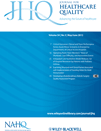
Journal for Healthcare Quality
Empowering practitioners with peer-reviewed knowledge.Journal for Healthcare Quality, published by Lippincott Williams & Wilkins, serves as a vital platform for disseminating innovative research and insights in the fields of health policy, public health, and medicine. With an ISSN of 1062-2551 and an E-ISSN of 1945-1474, this esteemed journal has been contributing to the improvement of healthcare practices since its inception in 1992. Positioned in the Q3 quartile across its relevant categories as of 2023, it addresses critical issues affecting healthcare quality and policy, demonstrating its commitment to advancing the field. Although it does not currently offer open access, the journal provides researchers and practitioners with an invaluable resource for enhancing their knowledge and practice through peer-reviewed articles aimed at an audience dedicated to improving health outcomes. Located in Philadelphia, the journal continually strives to bridge the gap between research and practical application, making it a cornerstone for those looking to impact healthcare quality.
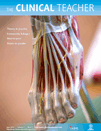
Clinical Teacher
Cultivating Knowledge for Future PractitionersThe Clinical Teacher is a leading journal published by WILEY, dedicated to fostering excellence in medical education and enhancing the skills of healthcare educators. With an ISSN of 1743-4971 and an E-ISSN of 1743-498X, this esteemed publication has gained recognition for its practical insights and innovative approaches, particularly in the realms of Teaching and Assessment within the medical field. Since its inception in 2006, it has maintained a notable impact within its categories, ranking Q3 in Medicine (miscellaneous) and an impressive Q1 in Review and Exam Preparation as of 2023. The journal's commitment to advancing educational practices is reflected in its exceptional Scopus ranking of #1 in the Nursing Review and Exam Preparation category, placing it in the 87th percentile of its peers. Although not open access, The Clinical Teacher serves as an invaluable resource for researchers, educators, and healthcare professionals focused on improving the learning experiences of future medical practitioners. With continued contributions from eminent figures in the field, this journal stands as a vital platform for the dissemination of knowledge and the evolution of teaching methodologies in clinical settings.
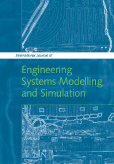
International Journal of Engineering Systems Modelling and SImulation
Fostering Interdisciplinary Collaboration for Sustainable EngineeringInternational Journal of Engineering Systems Modelling and Simulation, published by InderScience Enterprises Ltd, serves as a pivotal platform for sharing innovative research in the fields of engineering and simulation methodologies. With a focus on bridging theoretical frameworks and practical applications, this journal holds a notable position within the academic community, as evidenced by its Q3 ranking in Engineering and Q4 ranking in Modeling and Simulation categories in 2023. The journal is indexed in Scopus, spanning critical advancements from 2008 to 2024, thus ensuring that researchers and practitioners remain at the forefront of evolving technologies and methodologies. While lacking Open Access options, it continues to engage readers with its compelling content, addressing complex systems engineering challenges and fostering interdisciplinary collaboration essential for the development of sustainable and efficient engineering solutions. This journal is vital for academics, engineers, and students looking to contribute to and learn from emerging trends in systems modeling and engineering simulation.

Advances in Simulation
Elevating Research Standards in Simulation ExcellenceAdvances in Simulation is a premier open-access journal published by Springer Nature since 2015, designed to disseminate cutting-edge research and advancements within the realms of simulation across diverse fields. With a focus on areas such as cognitive and developmental neuroscience, ecology, and psychology, this journal is uniquely positioned at the intersection of various disciplines, as evidenced by its impressive 2023 quartile rankings, which range from Q1 in Ecology, Evolution, Behavior and Systematics to Q2 in Psychiatry and Mental Health. Hailing from the United Kingdom, and supporting an open-access model, Advances in Simulation not only promotes the visibility and accessibility of vital research but also engages a global audience of researchers, professionals, and students. Its significant impact factor underscores its importance in the academic community, making it a vital resource for those interested in the synthesis and advancement of simulation techniques across multiple domains.
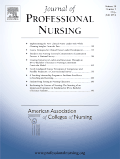
JOURNAL OF PROFESSIONAL NURSING
Transforming Healthcare with Cutting-Edge Nursing Research.JOURNAL OF PROFESSIONAL NURSING, published by W B SAUNDERS CO-ELSEVIER INC, stands as a leading scholarly resource in the field of nursing and general medicine. With an impressive impact factor and recognized as one of the top quartile journals in both Nursing and Medicine (Miscellaneous) for 2023, this journal serves as a vital platform for disseminating groundbreaking research and innovative practices within the nursing profession. Established in 1985, the journal has continually evolved, now converging its operations through 2024, thus ensuring access to the most contemporary and relevant insights. Researchers, professionals, and students are encouraged to explore its wealth of knowledge, which is critical for advancing both nursing education and clinical practices. While it operates under a traditional access model, the journal's premium quality content is accessible to all, enhancing its role as an essential resource in shaping the future of healthcare.

International Emergency Nursing
Transforming patient outcomes through evidence-based nursing.International Emergency Nursing is a distinguished journal dedicated to advancing knowledge and practice within the field of emergency nursing. Published by ELSEVIER SCI LTD in the United Kingdom, it has earned a prestigious place within the academic community, boasting a Q1 ranking in Emergency Nursing and ranking 6th out of 32 in its category according to Scopus metrics, placing it in the 82nd percentile. This journal provides a vital platform for researchers, practitioners, and students to disseminate their findings, share best practices, and learn about the latest innovations in emergency care from its inception in 2008 to the present. Although it is not an open-access journal, it ensures that valuable insights and research are accessible to a broad audience, fostering collaboration and education within the field. The journal's commitment to enhancing emergency nursing practices has made it an essential resource for those engaged in improving patient outcomes in critical care environments.

Journal of Medical Signals & Sensors
Exploring the Future of Health InformaticsJournal of Medical Signals & Sensors, published by Wolters Kluwer Medknow Publications, is a pioneering platform in the fields of Biomedical Engineering, Computer Science, and Health Informatics, focusing on innovative research and advancements in medical technology. With an Open Access policy since 2012, the journal promotes widespread dissemination of knowledge, aiming to facilitate the sharing of vital insights and developments among researchers, healthcare professionals, and students globally. The journal has achieved commendable rankings in its various categories, including Q3 in Biomedical Engineering and Radiology, underscoring its importance in advancing health technology and informatics. Its commitment to rigorous peer review ensures that published works are of the highest quality, making it a valuable resource for those engaged in cutting-edge medical research. With annual publications planned through 2024, the Journal of Medical Signals & Sensors continues to expand its influence and relevance in a rapidly evolving scientific landscape.

SIMULATION MODELLING PRACTICE AND THEORY
Elevating Knowledge in Simulation Modeling Across Disciplines.SIMULATION MODELLING PRACTICE AND THEORY is a leading academic journal published by Elsevier that focuses on the dynamic and evolving fields of simulation modeling and its applications across various disciplines. Established in 2002, this journal has rapidly gained recognition within the academic community, achieving a prestigious Q1 ranking in both Hardware and Architecture, as well as Modeling and Simulation for 2023. With an impressive impact factor that reflects its significance, it offers essential insights and findings pertinent to researchers, professionals, and students alike. The journal's scope encompasses a wide array of topics, encouraging interdisciplinary collaboration and innovation. Open access options further enhance visibility and accessibility of published research, contributing to the dissemination of knowledge in this critical field. Operating from its base in Amsterdam, Netherlands, SIMULATION MODELLING PRACTICE AND THEORY continues to provide a vital platform for advancements in simulation methodologies and applications, fostering an environment where theoretical principles and practical implementation converge.
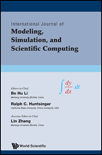
International Journal of Modeling Simulation and Scientific Computing
Elevating Research Standards in Computational MethodologiesThe International Journal of Modeling Simulation and Scientific Computing, published by WORLD SCIENTIFIC PUBL CO PTE LTD, is a pivotal resource in the realms of Computer Science Applications and Modeling and Simulation. With an ISSN of 1793-9623 and an E-ISSN of 1793-9615, this journal serves as a platform for innovative and high-quality research from 2010 to 2024, contributing to the advancement of methodologies and applications in various scientific fields. Although currently categorized in the Q4 quartile for both recognized domains and positioned in the 42nd and 36th percentiles in the Scopus rankings for Mathematics and Computer Science respectively, the journal encourages scholarly exchange and fosters the integration of modeling and computational analysis in scientific research. Researchers, professionals, and students alike will find this journal an essential tool to stay updated with trends, methodologies, and cutting-edge findings in simulation and computational techniques that drive scientific inquiry today.

JMIR Medical Education
Transforming Healthcare Education Through Open Access ResearchJMIR Medical Education is a leading journal published by JMIR Publications, Inc., specializing in the dynamic intersection of education and healthcare. Since its inception in 2015, the journal has embraced an open access model, ensuring that groundbreaking research is freely accessible to a global audience and facilitating knowledge exchange among educators, clinicians, and policy-makers. With an impressive impact factor established through its robust contributions to the field, JMIR Medical Education has quickly secured its position in the top quartile (Q1) of educational journals, ranking #137 out of 1543 in Social Sciences - Education and #58 out of 636 in Medicine - General Medicine according to Scopus metrics. This journal aims to address contemporary issues in medical education through innovative research, comprehensive reviews, and practical insights that enhance teaching and learning outcomes in the medical field. Positioned in Toronto, Canada, it reflects a commitment to advancing education in healthcare worldwide, making it an essential resource for researchers, professionals, and students dedicated to improving educational practices in medicine.